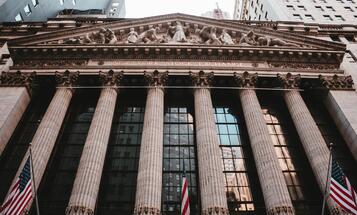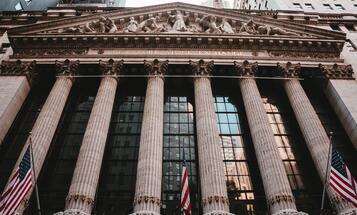
Demos Calls Consumer Protection Loophole for Car Dealers "Bad Policy, Pure Politics"
Loophole Would Allow Deceptive and Usurious Practices to Continue in a Market as Large as the Credit Card Industry
Washington, DC — Today Demos, a national public policy center, has come out in strong opposition to a pending legislative loophole that would exempt dealer-issued auto loans from the sweeping protections of the proposed Consumer Financial Protection Agency (CFPA). At over $850 billion in outstanding balances, auto loans now comprise almost as large a share of outstanding consumer debt as credit cards, and vehicle-related financial products can often come with many similar hidden fees and penalties — which already sap tens of billions of dollars from the household pocketbook. The auto dealer-loan industry's exemption from CFPA oversight leaves families vulnerable to widespread financial abuse.
Demos has been an ardent supporter of the CFPA, which would unify the now-patchwork financial product regulatory system and ensure a strong watchdog against lending abuses. For decades, the existing regulators (the Federal Reserve, FDIC, Office of the Comptroller of the Currency and the Office of Thrift Supervision) disregarded consumer protection — and by extension, the long-term health of our economy — because it conflicted with the short-term profitability of their regulated lenders.
Unfortunately, due to intense lobbying, the CFPA bill reported out of the House Financial Services committee would permanently shield from scrutiny the second most significant financial transaction in the life of the average consumer — an auto loan — if they secure the loan from a car dealership instead of directly from a lender. This is not an inconsequential loophole; nearly 80 percent of car loans come through dealers. Furthermore, dealer loans are plagued with well-documented markups, kickbacks and other abuses that cost consumers over $20 billion each year. By contrast, customer satisfaction in the smaller share of the market-loans directly from lenders such as community banks and credit union-is significantly higher.
"The fact that Congress members carved out a loophole precisely for the more abusive part of the auto finance market-literally, a loophole for the used car salesman-shows that strong lobbying can sometimes trump sound policymaking," says Heather McGhee, Director of Demos' Washington office and an expert on financial regulatory reform. "A vote to strike down this controversial provision when it comes to the House floor will lead directly to more affordable car purchases for families."
To underscore the problem with the unregulated dealer-issued loan market, Demos is highlighting the findings from a new report, Auto Race to the Bottom: Free Markets and Consumer Protection in Auto Finance. The report was co-authored by Demos Board Member Raj Date, who is the Executive Director of the Cambridge Winter Center for Financial Institutions Policy, and Brian Reed, CEO of Intersection Technologies, Inc. and a 25-year veteran of the auto finance industry.
"Intentionally creating two sets of rules-one for auto dealer-lenders and the other for the primarily community banks and credit unions that otherwise supply auto loans to customers-will squeeze small banks and credit unions into an even smaller share of the market, resulting in lower customer satisfaction, increased reliance on volatile Wall Street funding for U.S. auto loans, and higher financing costs at a time when both the auto industry and consumers are struggling," says Raj Date, co-author of the report.
Key Findings from Auto Race to the Bottom include:
Size of the Market: Bigger than Credit Cards. Auto dealers are not a niche part of an immaterial market; they are the single largest channel (with 79% market share) in the origination of auto loans and leases, a business that (at more than $850 billion in outstandings) is as large as the entire credit card industry and second only to mortgage lending. It is doubtful that the 75 percent of Americans who support a Consumer Financial Protection Agency contemplated a regulatory loophole this large.
Shielding the Worst Abuses: Protecting the Used Car Salesman? Americans rate dealer-lenders low on customer satisfaction surveys-and with good reason. Indeed, while auto dealers argue that they did not cause the financial crisis, their business practices and incentive structures served as a model for the mortgage brokers who helped fuel the housing crisis:
- Auto dealers typically charge a "mark up" on loans: the rate they offer the borrower is higher than what the ultimate lender quoted them, and the dealer collects the equivalent of half of the resultant excess finance charges;
- Auto dealers have the ability to obscure pricing among the several moving parts of an auto transaction (new car price, trade-in value, loan rate, front-end origination fees, "garbage" fees, aftermarket services);
- Auto dealers often receive incentives from lenders, or pay "dealer discount" to lenders, effectively eliminating price transparency;
- Shady practices are enabled because auto dealers' customer interaction often takes place not on recorded call center lines or supervised branch environments, but — literally — in back rooms on car lots.
Picking Winners: Community Banks and Credit Unions Lose Out. The auto dealer exemption intervenes with the free market in a way that is both inequitable and distorting. The auto finance market consists of two basic distribution channels. The first is the dealer (or "indirect") channel, in which dealers operate as middlemen between the borrower and the ultimate lender, usually one of a handful of large national banks or finance companies. In the retail (or "direct") channel, the customer secures a loan from a credit union, community or regional bank and takes it to the dealer to purchase a vehicle. If the House votes to grant the auto dealers an especially permissive regulatory regime, it will tilt the field against our nation's community banks and credit unions.
Destabilizing the Market: Locking-In Main Street Drivers to Wall Street. By artificially skewing the auto finance market in favor of the dealers' distribution channel, the exemption encourages the primacy of the dealers' Wall Street funding sources over traditional bank deposit funding. Capital markets funding has proven to be extraordinarily fickle, particularly in the asset-backed markets. As evidenced by the credit crunch, intentionally chasing businesses from traditional banks and credit unions into Wall Street funding models creates the real potential for disruptive volatility over time.
"Given these facts, it is clear that the only justification for carving out an auto dealer loophole in the much-needed CFPA is a political one," said McGhee. "In the interest of family financial security and the long-term economic health of our country, Congress should vote to restore full CFPA authority over auto dealers. Regulating the widespread unfair and deceptive practices in this market could lead to American families keeping an extra $20 billion a year."
###



